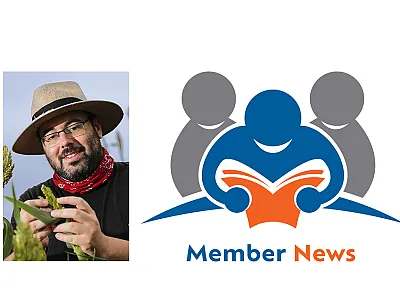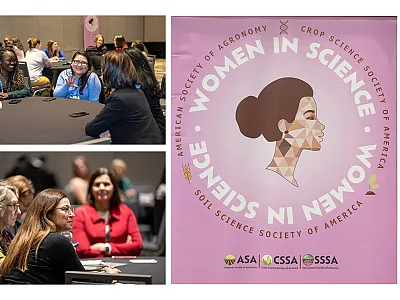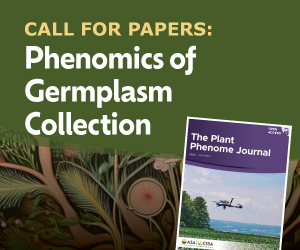Agronomists Without Borders
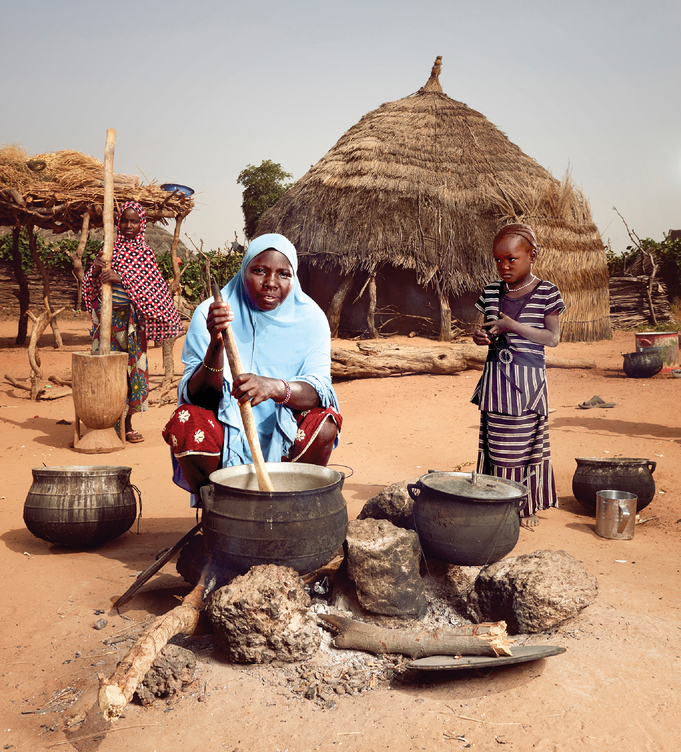
Greetings! The month of June is a great time for agronomists to celebrate the national days of food and agriculture. June 1 is National Olive Day where we can appreciate this delicious, nutritious, and versatile fruit that is a source of healthy fats and a yummy addition to salads, pizza, and cooked dishes. June 11 is National Corn on the Cob Day. Whether you prefer your corn on the cob steamed, grilled, or broiled, you can eat it naked, lightly salted, smothered in butter, or Mexican style with cheese, chilli, and lime.
If you are starting to get hungry, no need to wait for a national day—we can all think of a favorite, in‐season vegetable or fruit that we enjoy at this time of year!
The supply, diversity, and quality of the food we enjoy is the direct result of agronomic know‐how. Agronomists advise growers on the best cultivars, suitable methods to irrigate and apply fertilizers, and appropriate ways to control weeds, pests, and diseases. Agronomic decisions are pragmatic, balanced against the farm's economic constraints and with a healthy regard for the environment where the farm is located.
Despite Food Production Gains, Food Insecurity Remains
In 1977, Professor Emeritus D. Wynne Thorne from Utah State University wrote, “The education of agronomists has been an essential and leading factor in improving food production. It is the power that makes our system of scientific agriculture move forward.” Fast‐forward to 2023, and we see an incredible global capacity to produce food. For example, the Food and Agriculture Organization (FAO) found that global production of primary crops, including sugarcane, maize, rice and wheat, increased by 52% between 2000 and 2020 to 9.3 billion tonnes in 2020. Global fruit production went up 55% between 2000 and 2020 while that of vegetables increased by 65% in the same period.
Despite these impressive gains in global food production, we must acknowledge that access to food has not improved for everyone in the world. The FAO also reports that around 2.3 billion people in the world were moderately or severely food insecure in 2021, and 11.7% of the global population faced food insecurity at severe levels. People go hungry for multiple, complex reasons—biological, physical, social, and geopolitical. Still, people at risk of not having enough to eat are concentrated in rural areas of Africa, South America, and Asia where food is produced by low‐input, low‐yield smallholder farms. These parts of the world are most greatly affected by the yield gap—the difference between actual farm yield and the yield potential that can be achieved with an adapted crop variety having good agronomic management in favorable growing conditions.
Rural communities often have the natural resources and motivation to grow more food, but they may lack the technical skills or knowledge to implement affordable, lasting solutions to overcome the yield gaps in their cropping systems. We think this is an area where ASA can help.
One Way We Can Fulfill Our Society’s Mission
The mission of ASA is to empower people and communities to develop, disseminate, and apply agronomic solutions to sustain the world. Concretely, this has led the ASA Board of Directors and our ASA staff to imagine an initiative that we are tentatively calling “Agronomists Without Borders.” We would like to design a program where our student and professional members can volunteer to partner with an underserved community, at home or internationally, to develop more sustainable agricultural systems. We envision community‐led partnerships where ASA volunteers collaborate to build new capacity within the community.
To understand what such a program might look like, ASA discussed this idea with Engineers Without Borders USA (EWB‐USA) headquartered in Denver, CO. This group is a non‐profit 501(c)3 organization and a member of Engineers Without Borders International. Since 2002, the EWB‐USA has grown from a handful of passionate individuals to more than 14,000 volunteers working on hundreds of engineering projects in the United States and 38 international countries.
Agronomists want their work to help make the world a better place. One of the reasons you may want to volunteer in “Agronomists Without Borders” is because you possess agronomic training and knowledge that you would like to share with others. You might get satisfaction from work that develops a meaningful and sustainable solution to a community's real‐world agricultural problem. Perhaps volunteering will allow you to live and work with a community that you have not visited before, leading to deeper understanding of the culture and new friendships. It could be a chance to gain leadership skills or experience working with teammates from various backgrounds; thus, helping you to become more confident, personally and professionally.
We would like to design a program where our ... members can volunteer to partner with an underserved community, at home or internationally, to develop more sustainable agricultural systems.
What Might ‘Agronomists Without Borders’ Look Like?
You may be wondering what it takes to volunteer in “Agronomists Without Borders.” Let me describe two possibilities. The first is to be a Virtual Volunteer. This will allow you to mentor and advise your partner community from your home or office. Virtual Volunteers have strong professional and technical expertise that allows them help with strategic and tactical planning, data analysis, project review, and business development. The time commitment is a few hours per week. At the other end of the spectrum is an On‐Location Volunteer. This option is perfect for someone who wants to live and work in an underserved community. On‐Location Volunteers are involved in activities like scouting and surveying the community, analyzing the problem, proposing solutions in consultation with stakeholders and initiating the work plan. An On‐Location Volunteer may also be responsible for inspecting and analyzing the results, adapting the project in response to unforeseen variables or emerging needs, and evaluating and reporting on the outcomes. Because On‐Location Volunteers have a full‐time role, they receive a stipend to cover their travel and basic living costs in the partner community.
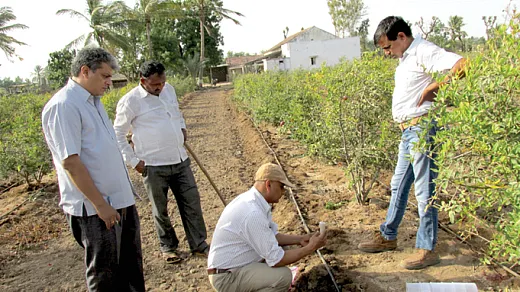
As your professional Society, ASA is pleased to continue to develop programs that give you an opportunity to help others in a meaningful and impactful way. If our proposal of “Agronomists Without Borders” interests you or you have a personal story that you would like to share about volunteering as an agronomist, please let us know! The contact person for this initiative is Luther Smith (608‐268‐4977 or lsmith@sciencesocieties.org). Please do not hesitate to contact me and the other members of your ASA Board of Directors, as well as your section and community leaders, with your ideas, stories, comments, questions, and concerns. We look forward to hearing from you!
Text © . The authors. CC BY-NC-ND 4.0. Except where otherwise noted, images are subject to copyright. Any reuse without express permission from the copyright owner is prohibited.




